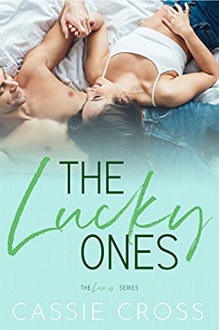
Another thrilling book by Michael Connelly, but a departure from the author’s familiar menu of detective novels that I have been voraciously consuming in chronological order. Not that there aren’t crimes perpetrated, murders (quite a number) committed and a host of intriguing rogues to ponder. Yet, without the long, heroic arm of the law to interfere, the book lacks the obvious duel between ‘right’ and ‘wrong’ , ‘good’ and ‘bad’. Instead, the reader is invited to throw his/her loyalties behind a robber/kidnapper (Cassie Black), rather than the ‘security consultant’ and psychopathic killer, with connections to the mob (Jack Karch). Of course, there are complex mitigating circumstances, which become clearer as the story unfolds, making it easier to root for the underdog, but the story, mainly set in Las Vegas is essentially a crime novel wherein the rules of the jungle apply and brazen quick wits may not be enough to overcome ruthless vested interests and well organized muscle.
Cassie is working in car sales following her release from prison in the euphemistically named ‘High Desert’ and keen to avoid a recall. However, with just fourteen months to see out, under the watchful eye of Thelma Kibble, her parole officer, the timeline is suddenly shrunk leaving Cassie needing big money, quickly, if she is to get away as she dreamed and make a fresh start.
On the one hand Cassie knows that the risks are huge, but despite the years of incarceration, the adrenaline of ‘outlaw juice’ has not been purged from Cassie Black’s system. Nor, has the sense of loss following that fateful night six years before, when her lover and charismatic mentor, Max Freeling, had died at The Cleopatra casino in Las Vegas. The book’s pervasive sense of destiny and inevitable symmetry though is encapsulated in the astrological musings of his step-brother Leo Renfro, who identifies potential jobs and has grave misgivings about the harmful influence of the ‘void moon’, which should be avoided at all costs.
For me, the protagonist in this novel, Cassie and her antagonist, Jack Karch, are quite weak characters by Connelly’s standards. Indeed Karch is almost a pastiche of the Las Vegas mobster and yet it is the ‘bit-part’ players that save it. Instead of concentrating on developing the main characters, in Thelma Kibble, Leo Renfro, ‘Jersey’ Palz (kit man) and Vincent Grimaldi (owner of The Cleo’) the author has, perhaps inadvertently, shaped far more interesting characters. That such cameos are more memorable than the key characters suggests a flawed story and yet it carries the hallmark pacy suspense and action associated with Connelly. Still, this diversion from the main course of the Harry Bosch series of novels does lend this book the feel of a ‘light bite’, an entree, ahead of my return to book seven in the series (‘A Darkness More than Night ’, 2001). At least my appetite has been piqued.


 Log in with Facebook
Log in with Facebook 









